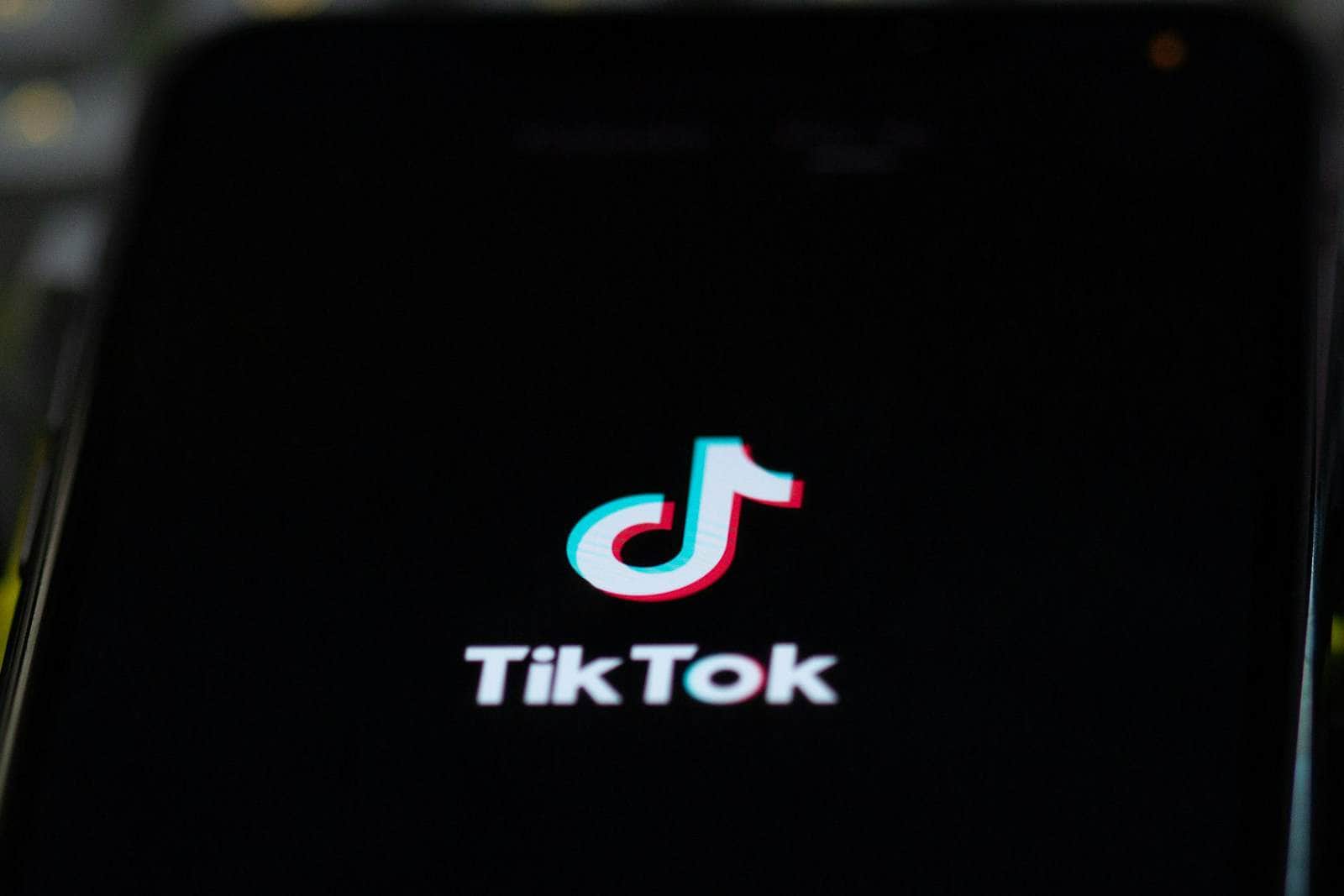TikTok, the popular social media app, is taking legal action against a potential ban in the United States. The company has asked a federal court to pause the enforcement of a law that could lead to its removal from app stores. This move comes as TikTok seeks to bring its case before the Supreme Court, challenging the constitutionality of the legislation.
The law in question requires TikTok’s Chinese parent company, ByteDance, to sell the app or face a ban in the US. TikTok argues that this requirement infringes on its rights and poses a threat to its operations. The company’s legal team is working to secure a temporary freeze on the law’s implementation while they prepare their appeal to the highest court in the land.
TikTok’s battle against the potential ban highlights the complex interplay between national security concerns and the rights of international tech companies operating in the US. The outcome of this legal challenge could have far-reaching implications for the future of social media regulation and international business relations.
TikTok Fights for its Future: U.S. Ban Heads to the Supreme Court
The ongoing saga of TikTok’s fate in the United States has reached a new climax: the popular social media platform is taking its fight against a potential nationwide ban to the Supreme Court. This legal battle pits TikTok, owned by Chinese company ByteDance, against the U.S. government, which has raised concerns about national security and data privacy.
Background of the Ban
The U.S. government’s concerns stem from the potential for TikTok’s user data to be accessed by the Chinese government. In late 2022 and early 2023, several states began banning TikTok on government devices, and in December 2023, Congress passed legislation banning the app on federal government devices.
The Biden administration has been in negotiations with TikTok to address these concerns, proposing a plan that would require TikTok to store U.S. user data on servers in the United States, with oversight from Oracle. However, an agreement has yet to be reached, and the threat of a nationwide ban looms.
TikTok’s Supreme Court Challenge
TikTok argues that a nationwide ban would violate its First Amendment rights and exceed the government’s authority. The company claims it has taken steps to safeguard U.S. user data and that there is no evidence of data being shared with the Chinese government.
The Supreme Court’s decision will have significant implications for TikTok’s future in the U.S. and could set a precedent for how the government regulates social media platforms and addresses national security concerns related to technology.
Key Arguments in the Case
- National Security: The U.S. government argues that TikTok poses a national security risk due to the potential for the Chinese government to access user data, which could be used for surveillance or propaganda purposes.
- First Amendment Rights: TikTok contends that a ban would infringe on its First Amendment rights to free speech and expression.
- Economic Impact: A ban could have significant economic consequences, impacting TikTok’s U.S. operations and the livelihoods of creators and businesses that rely on the platform.
- Data Privacy: Concerns about data privacy and the protection of user information are central to the case.
What to Expect
The Supreme Court is expected to hear the case in 2025. The justices will consider the arguments from both sides and issue a ruling that could have far-reaching consequences for the future of social media regulation in the U.S.
The Global Implications
This case is being closely watched around the world, as other countries grapple with similar concerns about TikTok and data security. The Supreme Court’s decision could influence how other nations approach the regulation of TikTok and other social media platforms.
The Future of Social Media Regulation
The TikTok case highlights the growing challenges of regulating social media platforms in an increasingly interconnected world. Governments are faced with balancing national security concerns with protecting free speech and promoting innovation.
The Supreme Court’s decision could shape the future of social media regulation and set important precedents for how governments address data privacy, national security, and the role of technology in society.
Key Takeaways
- TikTok is seeking Supreme Court review of a law that could lead to its ban in the US
- The company has requested a pause on the law’s enforcement during the legal process
- This case may set a precedent for social media regulation and international tech companies
Background of the TikTok Ban
The TikTok ban saga began with executive orders and legal challenges. It evolved through judicial proceedings and appeals, involving key government entities and the popular social media platform.
Executive Orders and Initial Actions
In August 2020, President Donald Trump issued executive orders targeting TikTok. He cited national security concerns related to the app’s Chinese ownership. The orders aimed to ban TikTok in the U.S. unless it was sold to an American company.
Congress later passed legislation in December 2022. This law banned TikTok on federal devices. It also gave the Biden administration power to ban the app nationwide.
The Department of Commerce tried to implement restrictions on TikTok. These efforts faced legal challenges from the company and its users.
Judicial Proceedings and Appeals
TikTok filed lawsuits to block the ban. Federal judges initially granted injunctions, preventing the orders from taking effect. These rulings cited potential First Amendment violations and exceeded presidential authority.
In 2023, a federal appeals court upheld the law allowing a potential TikTok ban. The court rejected TikTok’s arguments against the legislation. This decision paved the way for possible enforcement of restrictions on the app.
TikTok announced plans to appeal to the U.S. Supreme Court. The company seeks to overturn the appeals court ruling. It argues the ban is based on hypothetical security risks.
Constitutional Implications and Industry Impact
The TikTok ban case raises significant legal and business questions. It touches on key First Amendment issues and could reshape the social media landscape in the United States.
First Amendment and Censorship Concerns
The TikTok ban case brings free speech protections into focus. Courts must weigh national security concerns against First Amendment rights. TikTok argues the ban amounts to government censorship of a popular communication platform.
The app’s foreign ownership complicates traditional free speech arguments. Some legal experts question if TikTok, as a Chinese-owned company, can claim full First Amendment protections.
Critics worry a TikTok ban could set a dangerous precedent for future content restrictions. They fear it may open the door to broader government control over social media platforms.
Business Ramifications and Social Media Landscape
A TikTok ban would significantly impact the U.S. social media market. The app has over 100 million American users. Its absence would create opportunities for competitors like Instagram Reels and YouTube Shorts.
Major tech companies could face pressure to remove TikTok from app stores. This includes Apple and Google, who may need to comply with government orders.
The ban could disrupt TikTok’s e-commerce plans. The company recently launched TikTok Shop in the U.S. market. A shutdown would eliminate a growing revenue stream for the platform and its content creators.
American businesses using TikTok for marketing would need to quickly pivot strategies. Many companies have invested heavily in TikTok advertising and influencer partnerships.
Frequently Asked Questions
TikTok’s potential ban in the United States has raised many questions about its future operations, legal challenges, and impact on users. The company is taking its case to the Supreme Court, seeking to prevent enforcement of legislation that could lead to a ban.
What are the reasons behind the potential TikTok ban in the United States?
The U.S. government cites national security concerns as the primary reason for the potential TikTok ban. Officials worry that the app’s Chinese parent company, ByteDance, could be compelled to share user data with the Chinese government.
There are also concerns about potential censorship and manipulation of content on the platform to align with Chinese interests.
How might a Supreme Court ruling affect the future operations of TikTok in the U.S.?
A Supreme Court ruling in favor of TikTok could allow the app to continue operating in the U.S. without major changes. This would maintain the status quo for millions of American users and content creators.
If the Court rules against TikTok, it could lead to a ban or force ByteDance to sell the app to a U.S. company. This would significantly alter TikTok’s operations and user experience in the country.
What are the possible implications of a TikTok ban for U.S. content creators?
A TikTok ban would have a substantial impact on U.S. content creators who rely on the platform for income and exposure. Many creators would lose access to their audience and revenue streams.
Creators might need to migrate to alternative platforms or diversify their social media presence. This transition could be challenging and potentially result in reduced income or influence.
What legal arguments is TikTok presenting to the Supreme Court in response to the ban?
TikTok argues that the potential ban violates First Amendment rights to free speech and expression. The company claims the legislation unfairly targets a single company without due process.
TikTok also contends that there is no concrete evidence of data misuse or national security threats. The company emphasizes its efforts to protect user data and operate transparently.
How has the U.S. government justified the call for a TikTok ban?
The U.S. government justifies the potential ban by citing national security risks associated with Chinese-owned technology companies. Officials argue that Chinese law could compel ByteDance to share user data with the government.
The government also expresses concerns about potential content manipulation and the spread of misinformation on the platform. These issues are seen as threats to U.S. interests and public discourse.
What alternatives are users considering in the event of a TikTok ban in the U.S.?
Users are exploring alternative short-form video platforms like Instagram Reels, YouTube Shorts, and Triller. These apps offer similar features to TikTok and could potentially fill the void.
Some users are also considering newer platforms or those with different focus areas, such as BeReal or Clubhouse. The landscape of social media alternatives continues to evolve rapidly.







